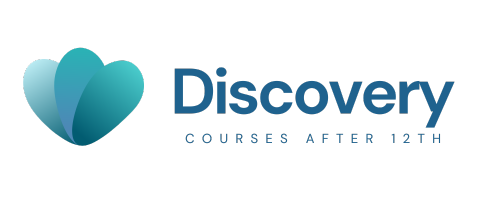How to Choose the Right Banking Courses After 12th for You?

Selecting the ideal banking course after 12th involves a strategic approach tailored to your goals and interests. With the banking sector’s diverse opportunities, finding the right fit demands careful consideration. Evaluate factors such as curriculum relevance, faculty expertise, industry connections, and internship opportunities. Assess whether the course aligns with your aspirations, whether in retail banking, investment banking, or financial analysis. Also, research the reputation, accreditation, and placement record of the institute. By systematically weighing these aspects, you can start banking courses after 12th that equip you with the vital knowledge and skills for a successful banking career.
How to Choose the Right Investment Banking Course After 12th
Selecting the right investment banking course after 12th is pivotal for a successful career in the finance industry. By meticulously researching program content, faculty, industry connections, and placement records, you can ensure your investment in education aligns with your professional aspirations. The top investment banking courses listed above provide a variety of options to equip you with the knowledge and skills needed to excel in the dynamic world of investment banking.
Selecting the optimal investment banking course after completing 12th grade requires a systematic approach tailored to your career aspirations. To make an informed decision, consider the following steps:
1. Research Program Content: Look for courses that provide a comprehensive understanding of investment banking concepts, including financial analysis, mergers and acquisitions, valuation, and capital markets.
2. Faculty Expertise: Investigate the credentials of the faculty members. Expert instructors with industry experience can enhance your learning and real-world insights.
3. Industry Connections: Choose a course with ties to reputable financial institutions and investment banking firms. Networking opportunities and industry interactions are crucial for future job prospects.
4. Internship Opportunities: Programs offering internships provide hands-on experience and exposure to the investment banking environment, a valuable asset on your resume.
5. Placement Records: Research the placement history of the institution. A strong track record of graduates securing positions in investment banking showcases the course’s effectiveness.
6. Course Duration and Structure: Consider the course duration and whether it offers flexible scheduling options to accommodate your commitments.
7. Accreditation: Opt for courses from accredited institutions, as they often meet high educational standards and are recognized by employers.
8. Course Fees: Evaluate the program’s cost against the potential returns in terms of skills gained and career opportunities.
9. Reviews and Testimonials: Seek feedback from current or past students to understand their experiences and outcomes.
10. Your Career Goals: Align the course’s content and specialization with your career goals within the investment banking sector.
Top 5 Investment Banking Courses
1. Certification in Investment Banking – Offered by reputable financial institutions, this program covers core investment banking concepts and techniques.
2. Diploma in Investment Banking – A comprehensive diploma course that delves deep into financial analysis, valuation, and mergers and acquisitions.
3. Bachelor’s in Finance with Investment Banking Specialization – An undergraduate degree combining finance education with specialized investment banking modules.
4. Postgraduate Diploma in Investment Banking – A postgraduate program focusing on advanced investment banking strategies and financial modeling.
5. Master’s in Finance with Investment Banking Emphasis – A higher-level degree program that offers an in-depth understanding of investment banking practices and strategic financial management.
Top Banking Courses After 12th Arts, Commerce, and Science
In today’s dynamic financial landscape, pursuing a career in banking offers a world of opportunities. Regardless of your educational background – be it arts, commerce, or science – there are tailored banking courses available to set you on the path to success. These courses provide a comprehensive understanding of banking operations, financial analysis, customer relations, and industry regulations. Whether you’re interested in retail banking, investment banking, or financial management, these courses equip you with skills that are essential for a thriving banking career. By choosing the right course aligned with your background and aspirations, you can embark on a journey toward becoming a proficient and sought-after banking professional.
Here are some banking courses that students from different streams (arts, commerce, and science) can consider after completing 12th grade:-
Banking Courses After 12th Arts:–
1. Diploma in Banking and Financial Services: This program covers banking fundamentals, financial services, and customer relationship management. It’s suitable for arts students looking to enter the banking sector.
Banking Courses After 12th Commerce:-
1. Bachelor of Commerce (B.Com) in Banking and Insurance: This specialized B.Com program focuses on banking operations, insurance, and financial services.
2. Diploma in Banking and Finance: A comprehensive diploma covering various aspects of banking, finance, and financial management.
Banking Courses After 12th Science:
1. Bachelor of Science (B.Sc) in Banking Technology: This program combines science with banking technology, providing insights into digital banking solutions and IT infrastructure in the banking sector.
2. Diploma in Banking and Accounting: A course that covers both banking principles and accounting techniques, suitable for science students interested in financial roles.
It’s important to note that while some banking courses might have certain prerequisites, students from various streams can often pursue these programs by meeting the eligibility criteria. Additionally, some universities might offer bridging courses or foundation programs to help students from different streams transition into banking-related courses.
Top Banking Courses After 12th
The realm of banking offers a spectrum of rewarding career opportunities, and embarking on the right educational path is pivotal for success. Post 12th grade, a range of top-notch banking courses awaits aspirants, equipping them with the knowledge and skills required to excel in this dynamic sector. These courses span diverse aspects, from retail banking to investment strategies, risk management, and financial analysis. With a strong emphasis on practical application and industry-relevant learning, these courses cater to the evolving demands of the financial landscape. By enrolling in one of these top banking courses, students set themselves on a journey toward becoming proficient, adaptable, and sought-after banking professionals.
| Banking Courses | Banking Courses Overview |
| Diploma in Banking and Finance (DBF) | A comprehensive program covering various aspects of banking operations, financial management, and customer relations. |
| B.Com in Banking and Finance | An undergraduate degree program that focuses on the banking and finance sectors, providing a strong foundation in financial management. |
| BBA) in Banking and Finance | A business-focused degree program that offers specialized courses in banking operations and financial services. |
| BA) in Banking and Insurance | This program combines banking and insurance studies, equipping students with knowledge about both sectors. |
| Certificate Course in Banking | Short-term courses providing basic knowledge of banking operations, customer service, and financial products. |
| Certification in Retail Banking | Focuses on retail banking operations, customer relationship management, and financial products. |
| Certified Credit Professional (CCP) | Designed for credit and lending professionals, this course covers credit risk assessment, loan management, and credit analysis. |
| Certification in Financial Planning | While not exclusive to banking, this course covers financial planning, investment strategies, and wealth management – relevant skills for banking professionals. |
| Certified Treasury Professional (CTP) | Focuses on treasury and cash management, essential skills for those dealing with financial transactions in banking. |
| Certified Anti Money Laundering Expert (CAME) | Relevant for compliance professionals, this course covers anti-money laundering regulations and practices. |
| Chartered Financial Analyst (CFA) | A globally recognized certification that covers investment management, portfolio analysis, and ethics, relevant for investment banking roles. |
| Financial Risk Manager (FRM) | Focuses on risk management in finance, relevant for roles in risk assessment and management in banking. |
| Certified Banking Compliance Professional (CBCP) | Relevant for compliance officers, this course covers regulatory compliance in banking operations. |
| Certified Investment Banking Operations Professional (CIBOP) | Focuses on investment banking operations, settlements, and financial market operations. |
| Diploma in Banking and Insurance Management | Combines knowledge of both banking and insurance sectors, relevant for roles in financial services. |
It’s important to research these courses thoroughly, considering factors such as course content, duration, institution reputation, and potential career opportunities. Additionally, some courses may have specific eligibility criteria, so make sure to check the requirements before applying.
What Are the Benefits of Taking Banking and Finance Courses After 12th?

Banking Courses After 12th:
Banking courses focus specifically on the operations, functions, and processes within the banking sector. These courses delve into various aspects of banking, including customer relations, financial products, transactions, risk management, compliance, and regulatory frameworks. They equip students with a comprehensive understanding of how banks operate, manage customer accounts, offer financial services, and ensure regulatory compliance. Banking courses often prepare students for roles such as bank tellers, customer service representatives, loan officers, and other positions within the banking industry.
Top 3 Banking Courses:
1. Diploma in Banking and Finance (DBF): A specialized program that focuses on core banking operations, customer relations, financial products, and regulatory compliance. Ideal for students aiming to start careers as bank tellers, customer service representatives, or loan officers.
2. Bachelor of Commerce (B.Com) in Banking and Finance: An undergraduate degree offering a comprehensive understanding of banking practices, financial management, and investment analysis. Prepares students for roles in retail banking, financial analysis, and customer relations.
3. Certification in Retail Banking: A short-term course tailored for individuals interested in retail banking operations. Covers customer relationship management, financial products, and efficient banking services.
Finance Courses After 12th:
Finance courses, on the other hand, have a broader scope that encompasses not only banking but also a wider range of financial activities. Finance courses cover topics like investment analysis, financial planning, risk assessment, asset management, capital markets, and corporate finance. While banking is a subset of finance, finance courses provide a more holistic view of the financial world, including aspects related to personal finance, investment banking, financial markets, corporate finance decisions, and wealth management. Graduates of finance courses can pursue careers in areas such as investment banking, financial analysis, portfolio management, corporate finance, and financial consulting.
Top 3 Finance Courses:
1. BBA in Finance: An undergraduate degree program that provides a broad foundation in finance, covering areas such as investment analysis, financial planning, and corporate finance. Suitable for those aspiring to work in investment banking, financial analysis, or corporate finance roles.
2. Certified Financial Planner (CFP) Certification: A globally recognized certification focusing on comprehensive financial planning, including investment strategies, retirement planning, tax management, and risk assessment. Relevant for individuals aiming to become financial planners or advisors.
3. Diploma in Financial Markets (DFM): This program offers insights into financial markets, asset management, and investment strategies. It’s suitable for students interested in understanding capital markets, trading, and portfolio management.
Key Differences:
1. Focus:
- Banking courses primarily center around banking operations, customer services, and financial transactions within banks.
- Finance courses have a broader focus, covering a wide array of financial activities, including banking operations, investment analysis, financial planning, and corporate finance.
2. Scope:
- Banking courses provide specialized knowledge and skills specific to the banking industry.
- Finance courses offer a broader understanding of financial activities beyond banking.
3. Career Opportunities:
- Banking courses prepare students for roles within banking institutions, such as bank tellers, customer service representatives, and loan officers.
- Finance courses open doors to various career paths, including investment banking, financial analysis, portfolio management, corporate finance, and financial consulting.
4. Content:
- Banking courses emphasize topics directly related to banking operations, compliance, customer relations, and financial products.
- Finance courses cover a wider range of topics, including investment strategies, risk management, financial markets, and corporate finance decisions.
5. Industry Relevance:
- Banking courses are ideal for students interested in pursuing a career specifically within the banking sector.
- Finance courses cater to individuals interested in a broader range of financial activities and careers beyond traditional banking.
When choosing between banking and finance courses, consider your interests, career goals, and the specific areas of the financial sector that resonate with you. Both types of courses have their own merits and can lead to fulfilling and successful careers in the financial industry.
Benefits of Taking Diploma Courses After 12th Grade?
Opting for diploma courses after completing 12th grade is a strategic choice that offers a host of advantages for both personal and professional development. These programs provide a focused and specialized curriculum, allowing students to delve deep into their chosen field of study. Diploma courses typically offer a shorter duration of study compared to traditional degree programs, enabling individuals to swiftly acquire skills and knowledge to enter the workforce or pursue higher education sooner. With an emphasis on hands-on learning, diploma courses cultivate practical expertise that can be immediately applied in real-world scenarios. Moreover, the affordability factor makes diploma courses an attractive option, presenting an efficient way to gain valuable skills without incurring an extensive financial burden. By opting for diploma courses, students can swiftly embark on a career journey, equipped with targeted skills that align with their aspirations in diverse industries.
Diploma courses after completing 12th grade offer several advantages that contribute to personal and professional growth. These benefits include:
1. Focused Skill Development: Diploma courses are designed to provide specialized knowledge and skills in a specific field, enabling you to acquire expertise quickly and effectively.
2. Shorter Duration: Diploma programs are generally shorter in duration compared to traditional degree programs, allowing you to enter the workforce or pursue higher education sooner.
3. Hands-On Learning: Diploma courses often emphasize practical, hands-on learning, which enhances your real-world application of theoretical concepts.
4. Cost-Effective: Diplomas are usually more affordable than degree programs, making them a cost-effective option to gain valuable skills without a long-term financial commitment.
5. Quick Entry to the Workforce: Diploma courses provide a direct pathway to employment in industries where practical skills are in high demand, offering opportunities for immediate job placements.
Top 5 Diploma Courses After 12th Grade:
| Diploma Courses | Overview |
| Diploma in Digital Marketing | A comprehensive course that equips you with skills in online marketing, social media management, and digital advertising. |
| Diploma in Web Development | Learn coding languages and design principles to create and maintain websites, a valuable skill in today’s tech-driven world. |
| Diploma in Graphic Design | Develop creativity and design skills, preparing you for roles in advertising, branding, and visual communication. |
| Diploma in Culinary Arts | Pursue your passion for cooking and hospitality with a program that covers culinary techniques, food safety, and kitchen management. |
| Diploma in Financial Management | Gain foundational knowledge in finance, accounting, and investment, opening doors to entry-level roles in the financial sector. |
Each of these diploma courses provides specialized training, practical skills, and a streamlined path to entering the workforce or pursuing further education in a specific field.






